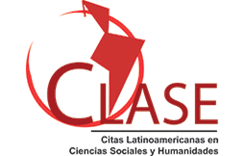The performance of municipalities in complying with the 2030 Agenda
the case of Rio Grande do Sul (Brazil)
DOI:
https://doi.org/10.54399/rbgdr.v20i1.6849Keywords:
Sustainable Development Goals (SDG), sustainable development, territorial synergy, spatial analysis, clusters analysisAbstract
The 2030 Agenda has been promoting the implementation and discussion of actions and policies to face the main challenges of humanity today. Although the execution of this broad program is the subject of several studies, most of them focus on national level, neglecting the intranational, especially the municipal scale. Therefore, the objective of the study was to highlight the territorial approach, considering the case of the municipalities of Rio Grande do Sul (Brazil). The main database of the investigation was the Municipal Performance Mandala, which proposes indicators segmented into four dimensions – economic, social, institutional and environmental. The application of the methods of spatial analysis and determination of agglomerations indicated interesting results, such as the centrality of the economic dimension in determining the overall performance of the municipalities, to the detriment of the remaining dimensions; the important synergy between the economic and environmental dimensions; and the reciprocal synergy in the environmental dimension. The conclusions indicate directions to improve compliance with the 2030 Agenda, especially in the sense of leaving no one or nowhere behind.
Downloads
Published
How to Cite
Issue
Section
License
Copyright (c) 2024 Revista Brasileira de Gestão e Desenvolvimento Regional

This work is licensed under a Creative Commons Attribution-NonCommercial 4.0 International License.
Authors who have their papers accepted and published in the Brazilian Journal of Regional Management and Development must agree to the copyright policy CC BY https://creativecommons.org/licenses/by/4.0/.
If the article is accepted for publication, the copyright is automatically assigned to the Brazilian Journal of Regional Management and Development.

















